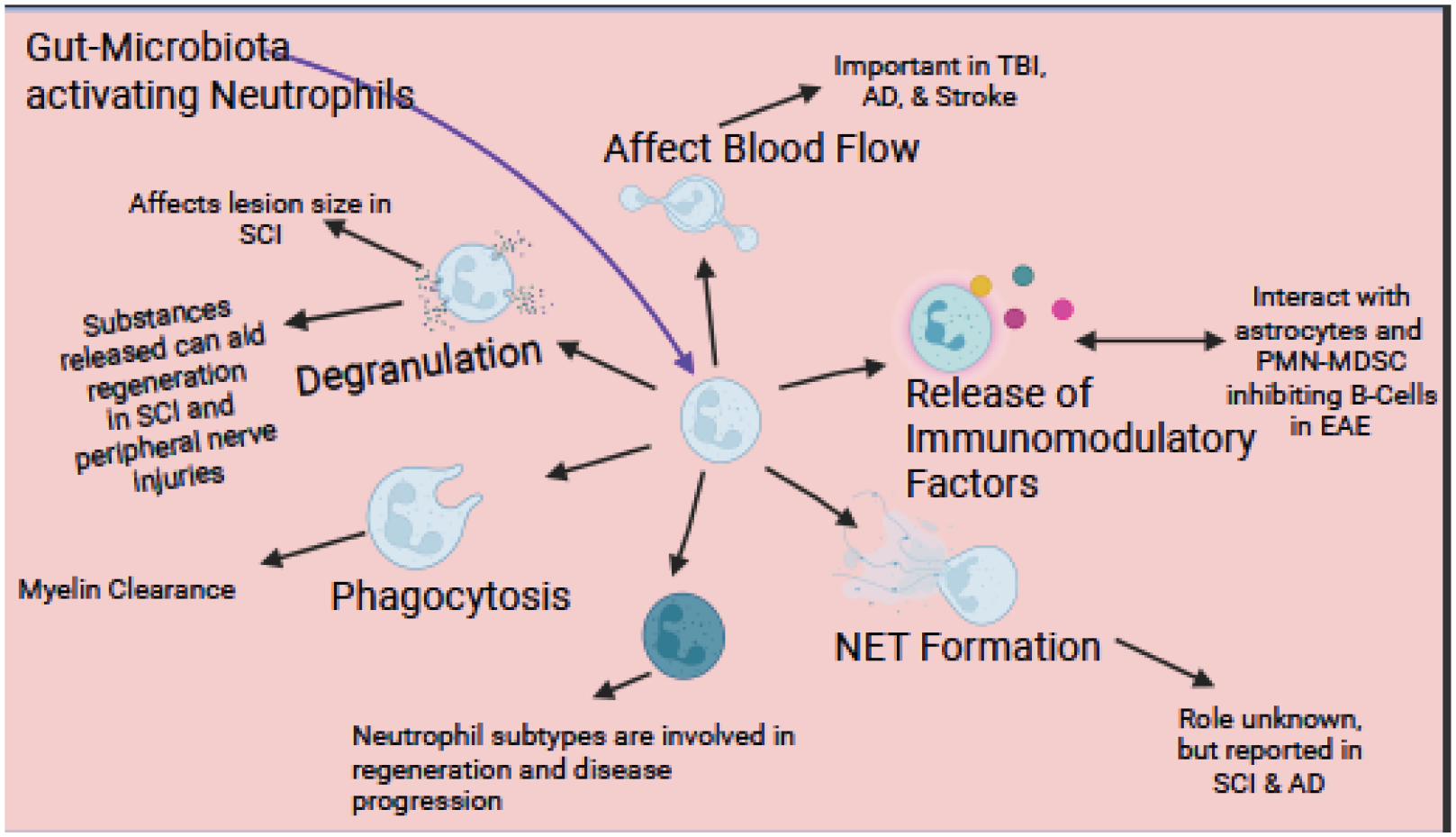Fig. 7. Summary.

In this figure, we summarize all the effects discussed in this article. Neutrophils have many vital roles in neurological disease and injuries. Degranulation affects the lesion size in multiple sclerosis (MS) and spinal cord injuries (SCI). Neutrophils possibly help with the phagocytosis of myelin debris after injury. The CD14 subtype’s role in regeneration is just starting to be investigated but holds promise. Other subtypes; (i.e., N2) involvement in other neurological conditions is being investigated. NET formation has been reported in SCI and Alzheimer’s disease (AD). Cytokine release from neutrophils can activate other cell types causing a continued immune response. Neutrophils have a significant effect on blood flow which affects clinical outcomes during traumatic brain injury (TBI) and stroke, in addition to playing a role in AD. It has been shown that neutrophils release regenerative molecules that aid regeneration in the peripheral nervous system after injury and in SCI. The role of the gut-microbiota activating neutrophils to aid in regeneration is an exciting and new avenue of research.
